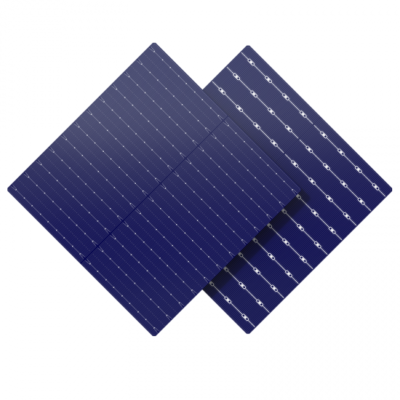
The green revolution is here and at the heart of it lies the sun – our abundant source of clean energy. Harnessing the power of the sun, or solar energy, has been a topic of discussion for decades. However, it is only in recent years that the idea of revolutionizing solar energy has truly gained traction. This change is primarily driven by the increasing demand for sustainable energy sources in the face of depleting fossil fuels and escalating climate change.
This revolution is not just about technological advancements in solar panels or improvements in their efficiency. It’s also about the innovative business models that are driving growth in the solar industry. With a solar panels supplier now being more accessible than ever, thanks to digital platforms and global supply chains, the need for inventive business strategies to penetrate new markets is essential.
This blog post aims to explore some of the successful business models that have significantly contributed to the expansion and growth of the solar industry. Each model has its unique advantages and offers different pathways for individuals, communities, and businesses to adopt solar energy and contribute to a sustainable future.
Residential Solar Leasing:
One of the key challenges in the adoption of solar energy by homeowners has been the high upfront cost of solar panels. The residential solar leasing model has revolutionized the way homeowners access solar energy. Instead of purchasing solar panels outright, homeowners can lease them from a solar panels supplier for a certain period.
This model has opened the door to solar energy for a wider range of homeowners, making it more affordable and accessible. The benefits are manifold. By leasing solar panels, homeowners can enjoy reduced electricity bills, contribute to environmental sustainability, and even enjoy a surplus of energy that can be fed back into the grid in some cases. The leasing model also often includes maintenance and repair services by the solar panels supplier, relieving homeowners of any associated hassles.
Community Solar Gardens:
Not everyone has a roof that’s suitable for installing solar panels. Some might live in apartment buildings, have shaded roofs, or simply can’t afford the investment. Community solar gardens offer an innovative approach to accessing solar energy for such individuals. In this model, multiple individuals or businesses collectively invest in a solar energy project, typically hosted on a suitable off-site location.
By investing in community solar gardens, individuals who cannot install solar panels on their own properties can still reap the benefits of solar energy. This collaborative model carries multiple advantages. It allows for cost-sharing among the participants, scalability depending on the size of the garden, and increased community involvement in green initiatives. It’s a testament to the power of collective action towards sustainability.
Solar Power Purchase Agreements (PPAs):
The solar power purchase agreement (PPA) model is another effective strategy that has gained popularity in commercial and industrial sectors. In this model, a third-party developer, usually a solar panels supplier or a solar project developer, installs and maintains solar panels on a customer’s property.
The customer then agrees to purchase the electricity generated by these solar panels at a predetermined rate, which is often lower than the local utility’s retail rate. PPAs offer a host of advantages. Customers can leverage solar power without the burden of upfront costs, enjoy long-term savings on electricity bills, and reduce their reliance on traditional energy sources.
Virtual Power Purchase Agreements (VPPAs):
While PPAs involve physical installation of solar panels, virtual power purchase agreements (VPPAs) provide an alternative for companies that want to support solar energy without the need for physically installing solar panels on their premises. In a VPPA, companies enter into a contract with a solar project developer to purchase renewable energy credits from solar projects.
VPPAs offer a unique opportunity for companies to promote solar energy production and contribute to their corporate social responsibility initiatives. They provide environmental benefits, help manage energy price risks, and can boost a company’s green credentials.
Solar Microgrids:
Solar energy is not just transforming urban landscapes but also bringing about significant change in remote and underserved areas. Solar microgrids are localized energy systems that combine solar power with energy storage and distribution capabilities.
These systems can provide reliable and resilient energy solutions in areas that lack access to the central power grid. For such regions, solar microgrids can revolutionize energy access, stimulate economic growth, and significantly improve the quality of life. By integrating with local resources and needs, solar microgrids provide a sustainable and self-sufficient solution for energy needs.
Solar Energy Storage and Grid Integration:
The revolutionization of solar energy also hinges on advancements in energy storage technologies. Solar energy is intermittent – it’s abundant during the day, especially in sunny conditions, and absent during the night. Enhanced battery storage systems now allow solar energy to be stored and used during non-sunlight hours, thus optimizing the use of solar power.
Grid integration is another critical aspect of the solar revolution. As more and more households and businesses generate their own electricity through solar panels, there’s a growing need for grid infrastructure that can handle the inflow and outflow of electricity. Grid integration plays a crucial role in ensuring a seamless transition to a solar-powered future and requires innovative solutions in energy management and grid architecture.
Last But Least:
This blog post has delved into various successful solar business models, each contributing to the revolutionization of solar energy in its unique way. As the solar industry continues to grow and expand into new markets, these innovative business models will play an increasingly critical role.
Whether you’re a homeowner looking to save on energy bills, a business seeking to reduce your carbon footprint, or a solar panels supplier aiming to tap into new markets, there’s much to gain from exploring and adopting these models. As we move towards a more sustainable and solar-powered future, these business models not only offer economic benefits but also provide a pathway for us to contribute to the global sustainability goals.






Leave A Message
If you are interested in our products and want to know more details,please leave a message here,we will reply you as soon as we can.
Subject: Revolutionizing Solar: Top Business Models for Growth (2024)